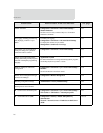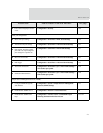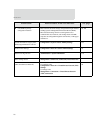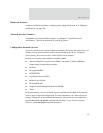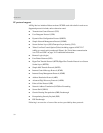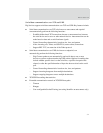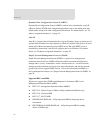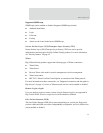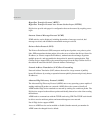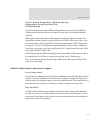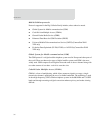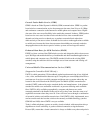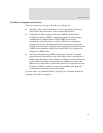
Features
34
HyperText Transfer Protocol (HTTP)
HyperText Transfer Protocol over Secure Socket Layer (HTTPS)
Digi devices provide web pages for configuration that can be secured by requiring a user
login.
Internet Control Message Protocol (ICMP)
ICMP statistics can be displayed, including the number of messages received, bad
messages received, and destination unreachable messages received.
Point-to-Point Protocol (PPP)
The Point-to-Point Protocol (PPP) transports multi-protocol packets over point-to-point
links. PPP encapsulates the data packet, allows the server to inform the dial-up client of its
IP address (or client to request the IP address), authenticates the exchange, negotiates
multiple protocols, and reassembles the data packet for network communication. Digi
Cellular devices support PPP as the connection protocol from the Digi Cellular device to
the cellular IP network with NAT (Network Address Technology).
Network Address Translation (NAT)/Port Forwarding
Network Address Translation (NAT) reduces the need for a large amount of publicly
known IP addresses by creating a separation between publicly known and privately known
IP addresses.
Advanced Digi Discovery Protocol (ADDP)
The Advanced Digi Discovery Protocol (ADDP) runs on any operating system capable of
sending multicast IP packets on a network. ADDP allows the system to identify all
ADDP-enabled Digi devices attached to a network by sending out a multicast packet. The
Digi devices respond to the multicast packet and identify themselves to the client sending
the multicast.
ADDP needs to communicate with the TCP/IP stack using UDP. The TCP/IP stack should
be able to receive multicast packets and transmit datagrams on a network.
Not all Digi devices support ADDP.
Access to ADDP service can be enabled or disabled, but the network port number for
ADDP cannot be changed from its default.



